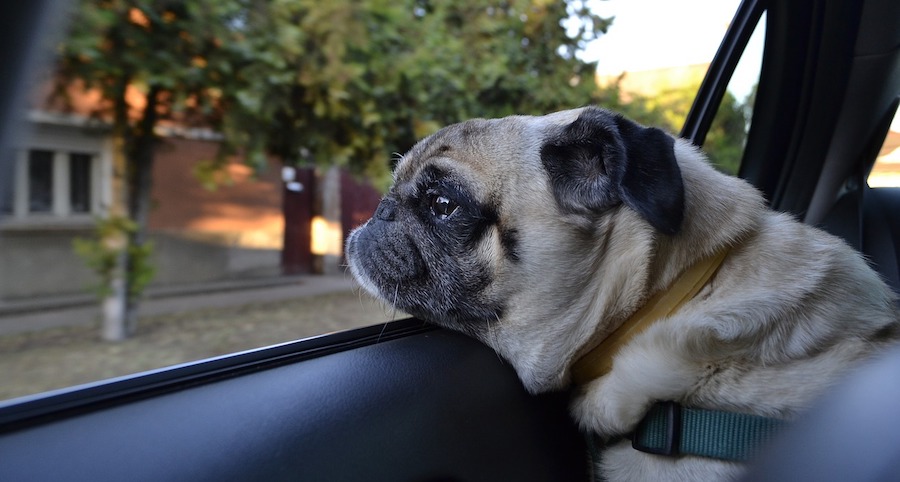
Travel sickness is a common occurrence, affecting 1 in 6 dogs of all ages. It is more common in puppies, but for some dogs it may persist as they grow into adults.
Your pup may come to associate car trips with nausea after a bad experience, with anxiety and stress also exacerbating travel sickness.
What are the symptoms?
Symptoms of car sickness go well beyond the obvious – physically vomiting – and can include:
- Whining and trembling
- Excess drooling
- Lip licking or smacking
- Lethargy or generally subdued behaviour
- Diarrhoea
- Anxiety
What can I do to help my dog?
There are several things you can do to alleviate car sickness:
- Acclimatise your dog to the car, start with the car turned off and parked and reward calm behaviour with treats and praise.
Progress to turning the engine on without driving anywhere and then to taking short trips around the block.
Eventually aim for a 30 minute car ride to somewhere they would enjoy, like the park. - Travel on an empty stomach- don’t feed for 6-12 hours prior to travel.
- Use a secured crate or seatbelt, to minimise movement.
- Open windows or use air conditioning.
- Ask us about anti-nausea medication.
- Relieve anxiety with a pheromone spray like Pet Remedy.
- Give your dog a favourite toy or blanket in the car, to remind them of home.
Most pups and dogs become good travellers, but if your dog is having serious problems with travel sickness and you’d like to discuss anti-nausea medication, please call us on 01435 864422.

